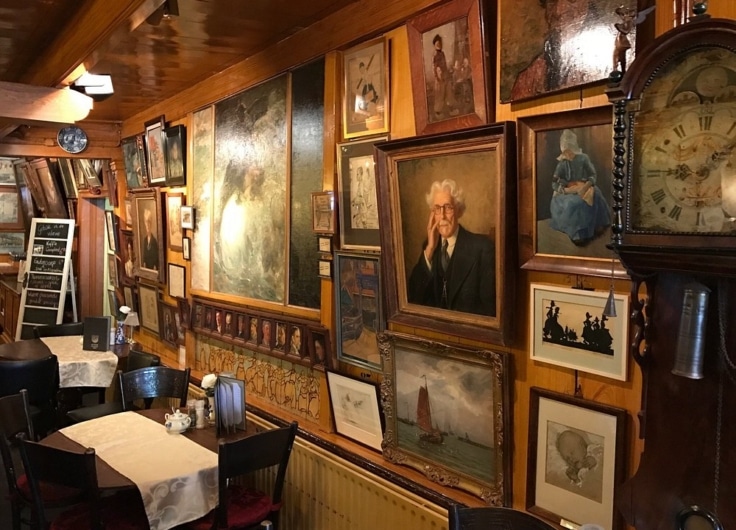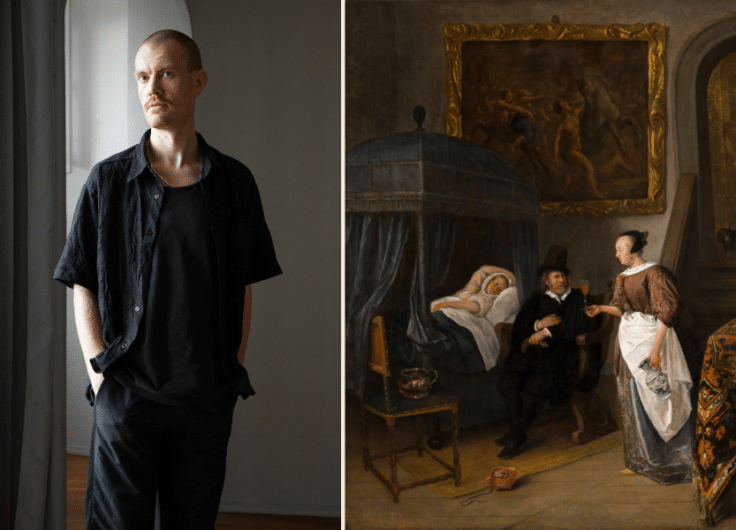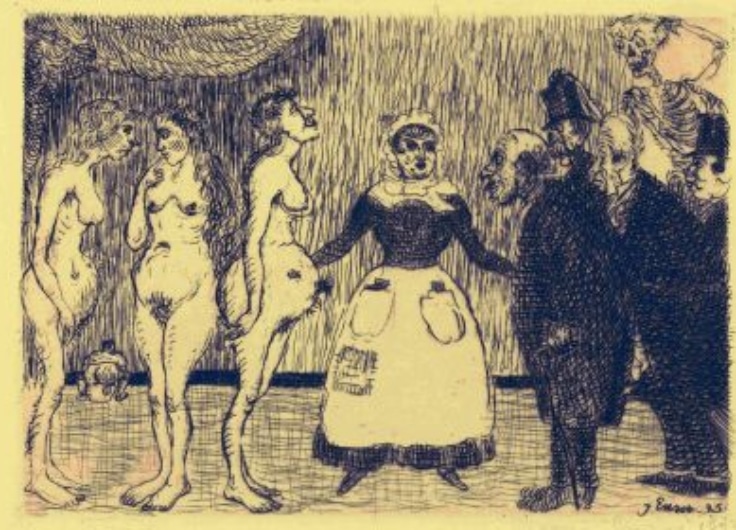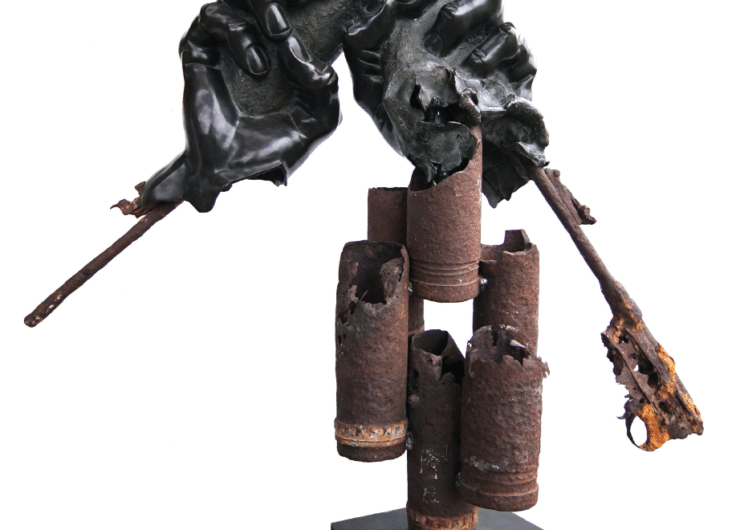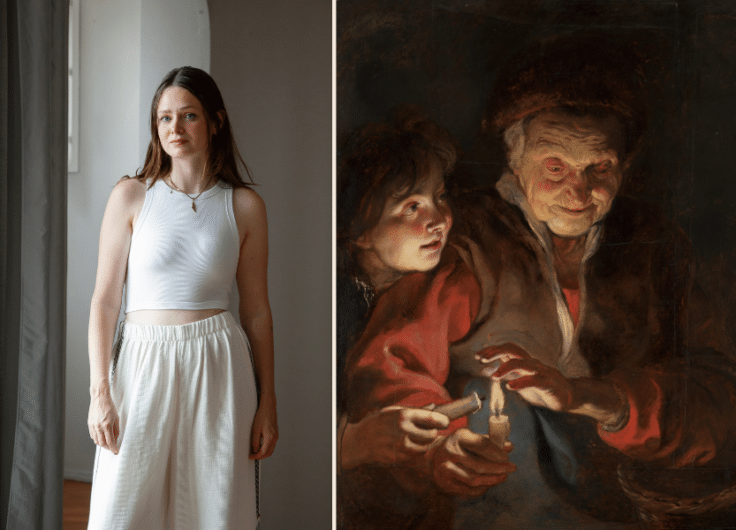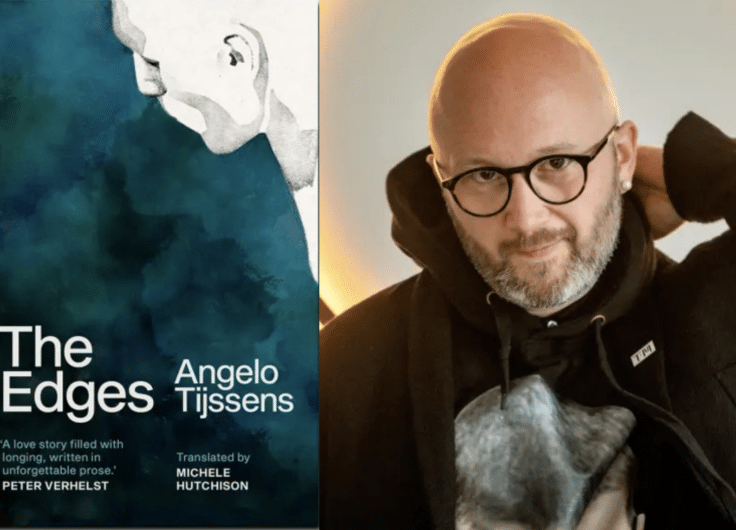‘Omdat Ze Leven’ by Brecht de Backer: Quantum Theory Provides Grip in a Messy Existence
How to live? It’s no mean feat, even less so as a single lesbian woman with a desire to have children, as Brecht De Backer’s philosophical debut novel reveals.
The story of you and all the children I never had, so reads the subtitle of Omdat ze leven (Because They Live), the debut novel by Brecht De Backer (b. 1987). Despite an aptitude for maths, science, and all things nerdy, as an eighteen-year-old De Backer went to study Theatre, Film and Literature in Antwerp. It’s a fine passage in her debut, which draws considerably on her own life: how she gets off the train in the big city, not really knowing yet at which faculty she will enrol. She is already familiar with the sciences from school, less so with the arts. So she chooses the unknown, the new, the plunge.
Her search for how to live life is a constant theme. The search for who she is, where she best belongs, or at least feels a little bit at home. As a teenager she realises she is an outsider, especially after kissing a girl at a festival and experiencing what a real kiss feels like for the first time. She is attention-seeking, claim her classmates sourly, but Brecht tingles and trembles and lives.
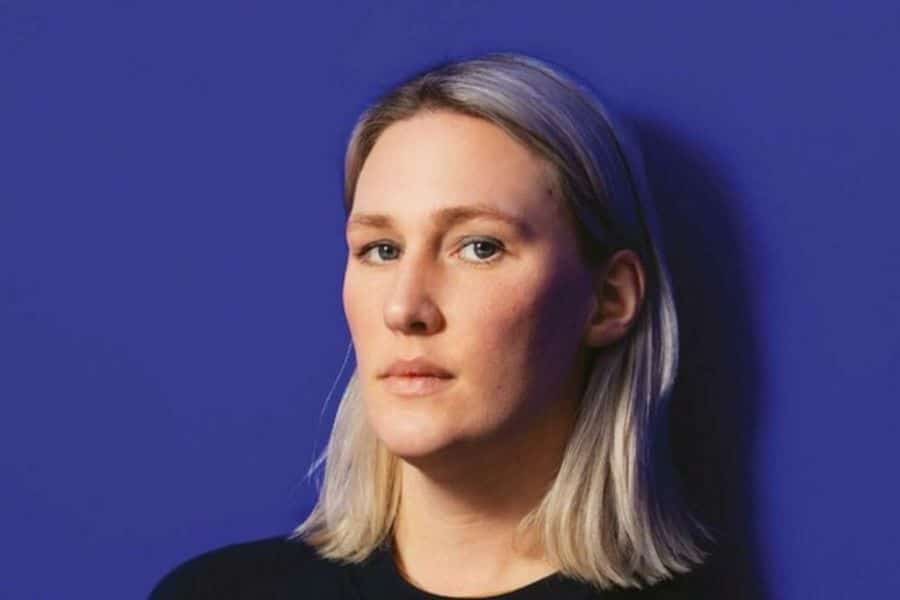 In beautiful, loving sentences, De Backer outlines the lives of a mother and her future children.
In beautiful, loving sentences, De Backer outlines the lives of a mother and her future children.© Atlas Contact
Life as a young lesbian woman doesn’t get any easier when Brecht turns out to have an irrepressible desire for children. Even when she has moved to what many Flemings consider the slightly more progressive Netherlands, it seems her wish is not easy to fulfil. Brecht explores different paths, and time and again she is already thinking about the life to come, the new life for a child, but also for herself.
Philosophical reflections are an important part of the book. If this young mother-to-be can already imagine the lives of her future children, then aren’t they there? Don’t they belong to her, and to all those with whom she shares her life? In beautiful, loving sentences, De Backer outlines the lives they haven’t lived. Or just have.
If this young mother-to-be can already imagine the lives of her future children, then aren’t they there?
The respective fathers of quantum theory and the theory of relativity, Niels Bohr and Albert Einstein, and their lively debate at the fifth Solvay Conference in Brussels in 1927 accompany her throughout the novel. There, the two physicists engaged in a verbal spar, seeking an equation, a theory that would explain everything.
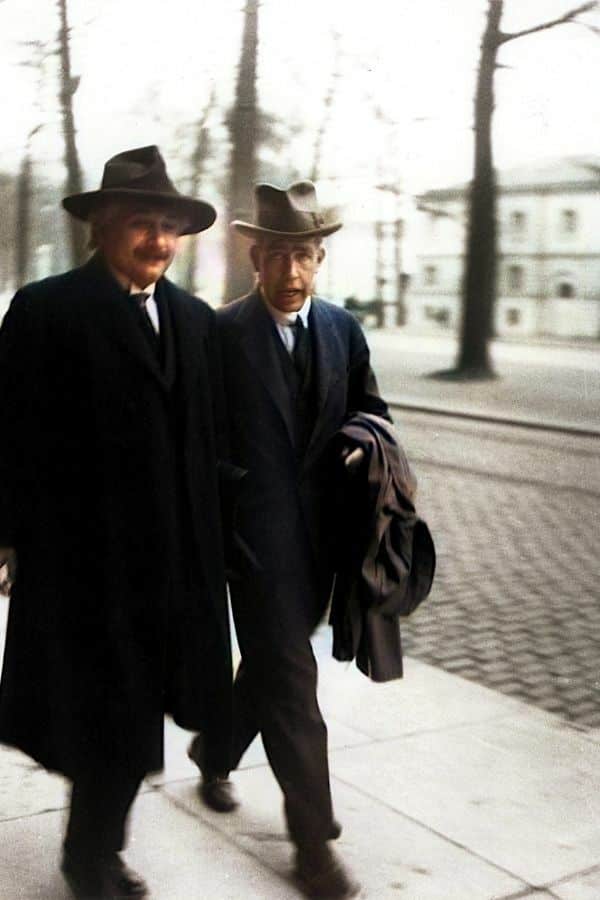 Albert Einstein and Niels Bohr in Brussels
Albert Einstein and Niels Bohr in Brussels© Wikipedia
That discussion is still ongoing, without its original protagonists, and the all-explanatory theory for life has not yet been found. The closest thing, largely inspired by quantum mechanics, is string theory or the controversial many-worlds theory, which means that all possible alternative histories and futures are real.
Multiple outcomes are possible in every situation, in different universes. Those outcomes also coexist. Unfortunately, human beings, due to their physical and mental limitations, can only see and experience one outcome in one universe.
Inspired partly by the short story The Garden of Forking Paths by Jorge Louis Borges, who had in turn closely followed the discussion between Bohr and Einstein, the main character Brecht constructs her own theory and life wisdom. Some forking paths are obvious and behind her, such as choosing what to study. But the most important paths are clearly up ahead.
De Backer describes how motherhood can be fulfilled in many different ways in essayistic, intimate chapters
The most important path of all is motherhood. De Backer describes how that can be fulfilled in many different ways in essayistic, intimate chapters, in which Brecht is already shaping her children’s lives. In the universe she inhabits, there is adversity and opposition: homophobia, disbelief and clumsy comments from friends, burdensome administrative procedures, and long waiting times. Her rage at all this sizzles off the page.
And even though Brecht sometimes describes herself as a spontaneous tomboy, via all those intimate thoughts about becoming pregnant and being a mother you get the impression of a somewhat introverted, timid, probing woman.
Because things in this universe so often fail or result in nothing, Brecht clings to what might happen in those other universes. In this way, theory can provide a foothold for living a true, real life. And because of the “you” in the subtitle, we know that even in this universe, things will work out in the end.
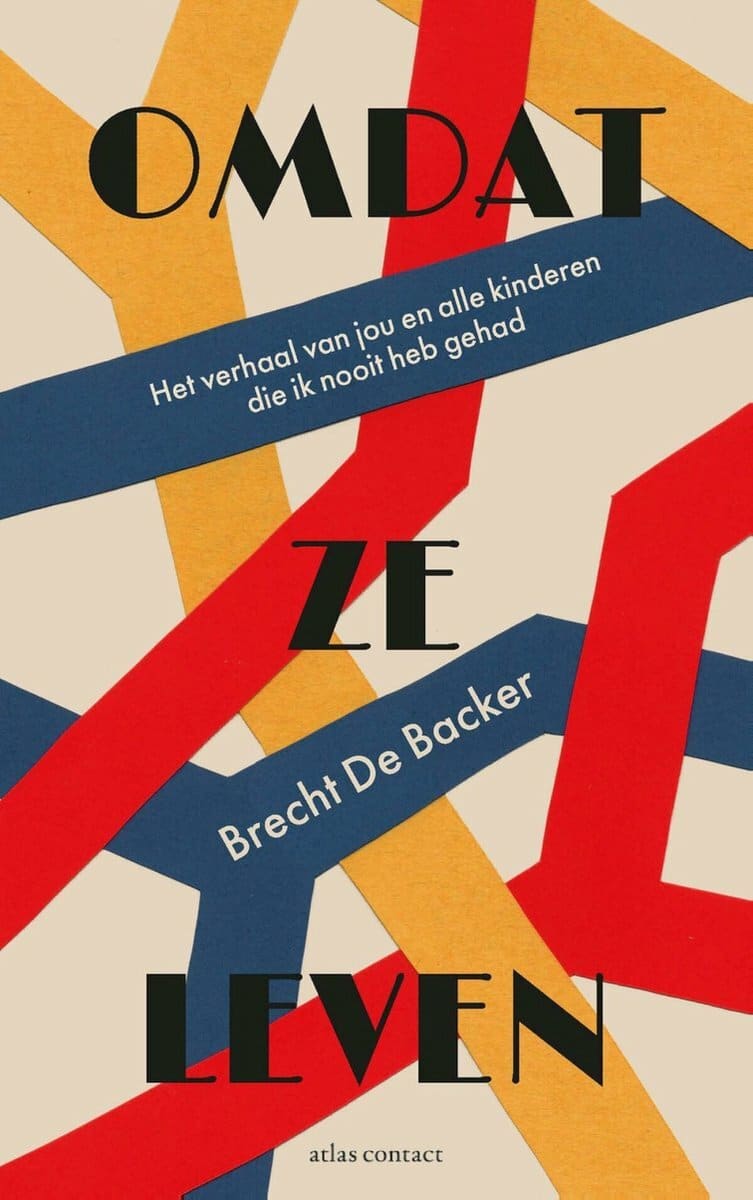
Omdat ze leven (Because They Live) is not always an easy read. It is essayistic and philosophical in tone; there is a lot of science in it. But it is also a book about a young woman full of love for her children, and how she thus rediscovers love for her own mother. Above all, it is the story of a courageous, powerful, and stubborn woman, who with love, willpower and the occasional dose of much-needed humour tries to bend the universe to her will.
Excerpt of ‘Omdat ze leven’, as translated by Elisabeth Salverda
While Zinedine Zidane superbly heads a ball into the Brazilian team’s net twice during the legendary final of the World Cup in ’98, I find myself shuffling with a boy for the first time at athletics camp. David, that’s the name of the boy in question, doesn’t dare make eye contact but he is bold enough to put his clammy hands just above my bum. With my hands on his shoulders, I try to keep him at a safe arm’s length away as we sway awkwardly from side to side to “High” by Lighthouse Family. From where we are fumbling, I have a nearly unobstructed view (occasionally his head gets in the way) of Emily, who is dancing with what’s-his-face in a slightly more intimate way. My 11-year-old self is not yet aware of the fine line between wanting to be someone and wanting to be with someone. What I am aware of, however, is that after the summer holiday, I will be going to another school to finish my last year in primary school. The bullying had gotten too bad last year and I had refused to go to school anymore. Before I left for athletics camp, I had heard my mother crying as she asked my father when I would stop acting like a boy. She doesn’t know I heard. It broke my heart. I make my mother sad. At this new school I will be someone completely different, a fresh start, I will behave like a real girl. Everyone will like me and no one will be sad anymore because of who I am. Emily is exactly one of those girls everyone loves. She is calm, very involved and committed to everyone. The way she moves and looks at you, she gives you her complete attention. With her, everyone feels safe and seen. I study her intensely all week and after we return home, I become pen pals with her and even go to stay with her for a weekend. By the time the new school year starts, I am her. The most popular girl in the class. Everyone is happy, just because I am a little less myself.
*
Your father was so nonchalant and carefree in his happiness. The blows that life dealt rebounded as if he were carrying a shield. In his arms, that shield also protected me. For a long time that was enough. Until you made me realise that I too can care, can protect, because that is precisely what I would have done for you.
In the weeks I carried you with me, I began to think about the future again. In that future, I had to be the best version of myself, for you. Even though I was saying goodbye to you, I was not saying goodbye to the future me I had seen. When the story of you ended, I packed my bags and began – again – my life. A life sprouted from yours.
Brecht De Backer, Omdat ze leven. Het verhaal van jou en alle kinderen die ik nooit heb gehad (Because They Live. The story of you and all the children I never had). AtlasContact, 2022, 208 p.


